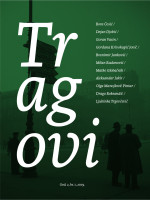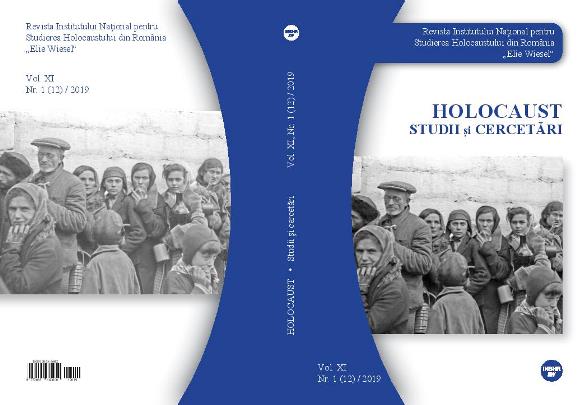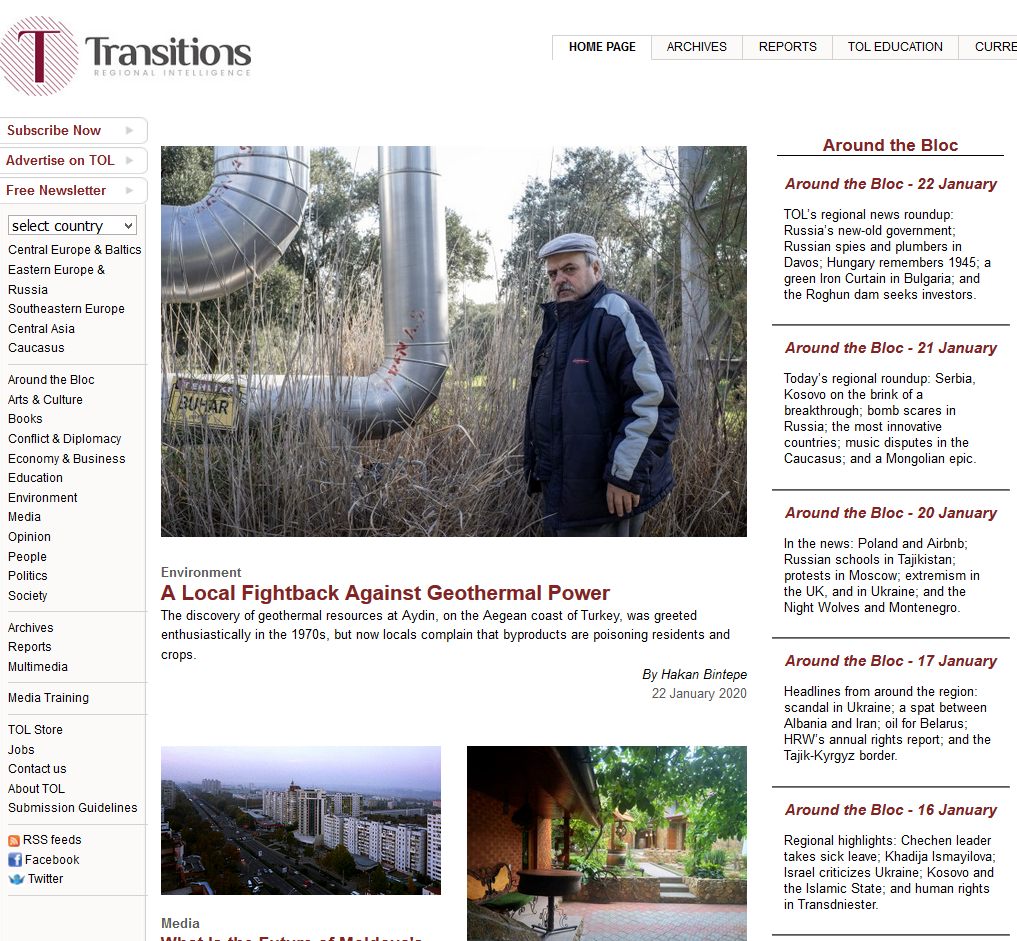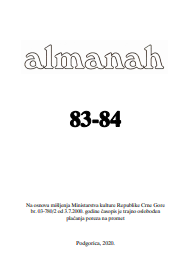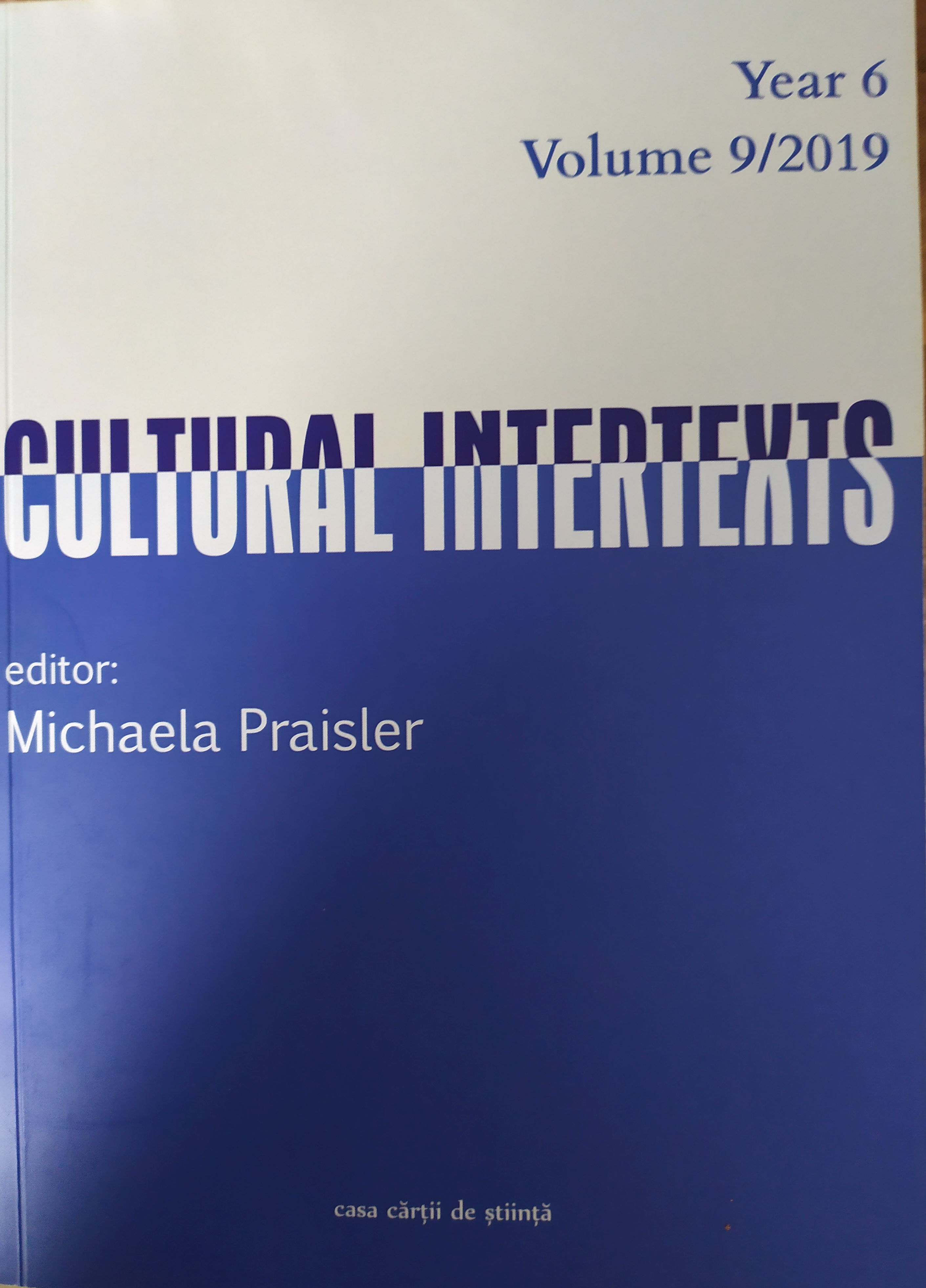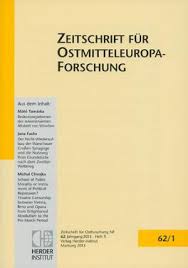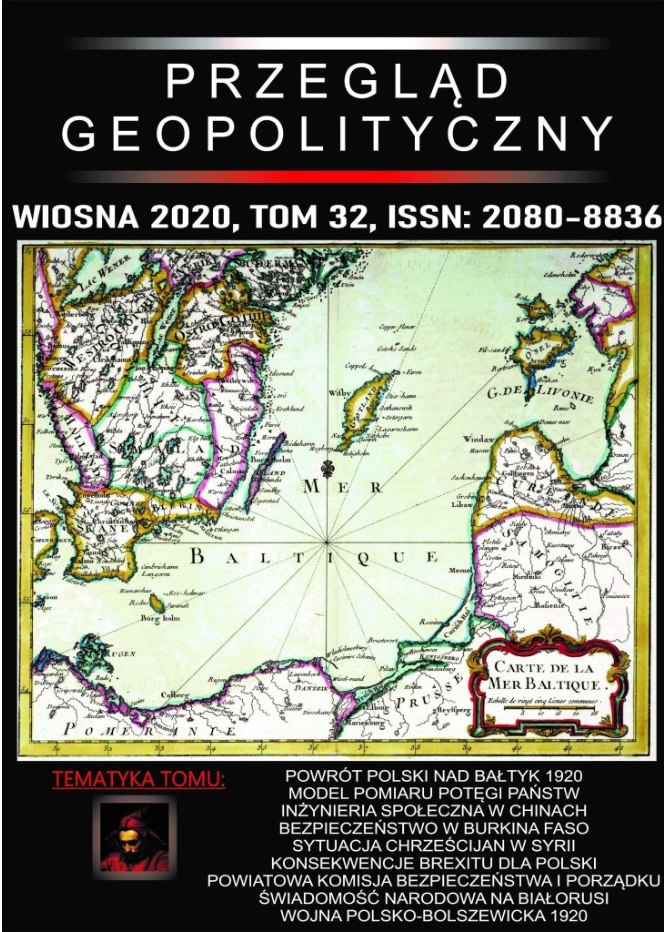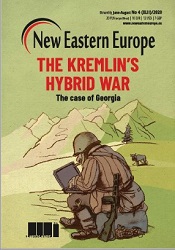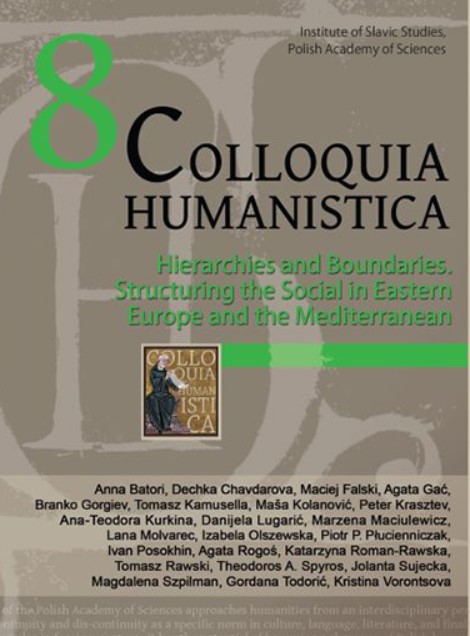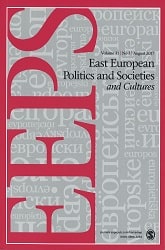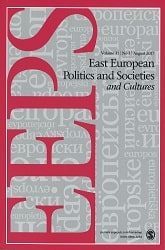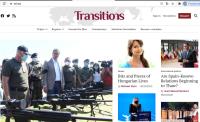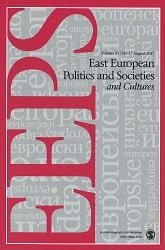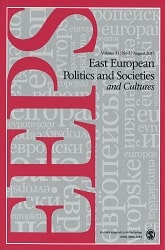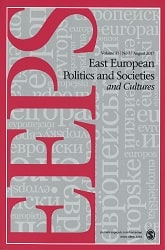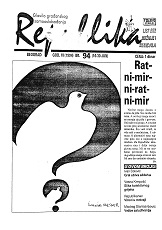
REPUBLIKA Godina VI (1994), Broj 94
Ratni- mirni- ratm- mir Mir/Rat Mir za Bosnu — spas i za nas Dubravka Stojanović, Rat je logičan! Olga Zlrojević, "Dosta se je zla činilo... Vesna Krmpotić, Slika kolektivnog grijeha Hatidža Dizdarević Krnjević, Čerečenje trudne Evrope Džejlana Pećanln, Senka Kurtović, Beograde, probudi se... Ljubinka Trgovčevlć, Slivene različitosti Milan Prodanović, Ujedinjenje odozdo Učinite to sebe radi Ž. Miloradavić, "Nije to ništa" Dragoš Ivanovič, Mit o nedodirljivosti Opšta politizacija Dušan Mojsin, Mrzeti mržnju, Vojislava Vignjević, Kako socijalisti kažu Nebojša Spaić, Stvaranje događaja Virovi u mrtvaji Orgija postmoderne "Civilizovana razmena stanovništva" Podvalantska levica Rade Veljanovski, Moć i nemoć Olivera Glumac, Bratstvo od sto hiljada maraka Gabriela Pajević, Raspirivanje budućnosti Pesnici i popovi Olivija Rusovac, "Masovna neupotreba ljudi" Stvaranje i njegovo suzbijanje Dve Sorbone Zadovoljstvo kreacije Vladimir Marković, "Treći put" superpatriotizma Ivan Čolović, Gral ubija aždahu Mirko Dorđević, Legenda o trulom Zapadu Mšodrag Stanisavljevlć, Vežbe zaluđivanja
More...
